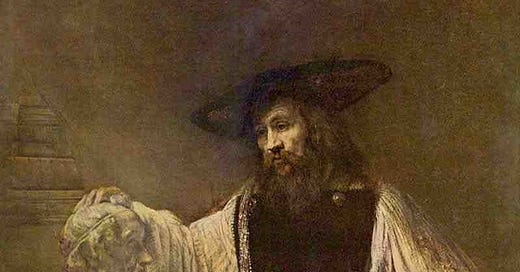Allowing the Poets into the Republic: Plato’s War Against Public Opinion Revisited
By David Gosselin
We’re making one of the featured essays from our Winter 2024 issue of New Lyre available in full for all our readers.
All great art has a naturally hypnotic power. Poetry’s lyrical and musical forms of expression have entranced human civilizations for millennia. Even today’s modern “pop” songs are by-and-large distillations and formalizations (often superficial) of earlier classical and lyrical modes of poetic expression. Take the ancient Greek poets like Sappho, Arion and Stesichorus: their verses were accompanied by a musical instrument like the lyre or kithara. From these arts arose the tradition of the lyric song, as in words accompanied by the lyre. Or consider the Ancient Greek dithyrambs, the ecstatic hymns sung and danced in honor of the god Dionysus, and accompanied by the aulos. Whether epic, lyric or dramatic forms, many of our most common modern musical modes of expression are ultimately derivations and adaptations of these earlier classical traditions.
Today, anyone heari…
Keep reading with a 7-day free trial
Subscribe to The Chained Muse to keep reading this post and get 7 days of free access to the full post archives.




